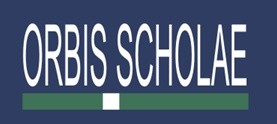Začínající učitelé jako informátoři o klimatu školy prizmatem tří metod
Novice teachers as informants about school climate from the point of view of three methods
Author(s): Stanislav JežekSubject(s): Education
Published by: Univerzita Karlova v Praze, Nakladatelství Karolinum
Keywords: school climate assessment; mental representations of school; specifiŠc informants; thematic analysis; diaries
Summary/Abstract: Different school participants (stakeholders) may be viewed as informants able to provide us with different aspects of the school environment that they are familiar with. Whether we define school climate as an institutional intersubjective characteristics, or as a subjective individual construct, in both cases we are interested in the specific perceptions of the different categories of informants. The study looks at what kinds of information relevant to the school climate assessment can be expected from novice teachers. Three methods are used: individual structured interviews, focus groups and diaries. The conceptual frame of schools as learning communities (Kruse et al. 1995) was used for thematic analysis. Only a small proportion of statements fit in the coding frame, i.e. novice teachers reflected mostly themselves, much less their school. Statements that could be coded fell mostly in the categories of deprivatisation of the practice, communication structures and shared re.ecting. Such reflections can be very valuable for school climate assessment. Novice teachers can inform well about the more formal communications structures, how practice is re.ected and shared among teachers. They are less able to form general evaluations at the school level, such as those frequently included in school climate assessment questionnaires.
Journal: Orbis scholae
- Issue Year: 3/2009
- Issue No: 1
- Page Range: 45-61
- Page Count: 17
- Language: Czech

